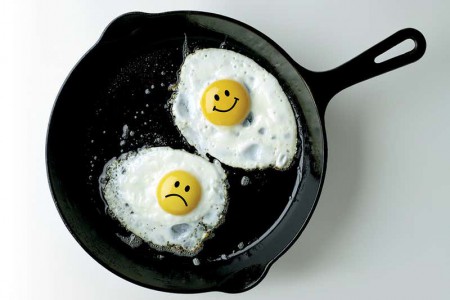ONE morning a few months ago, I saw a headline that made my heart sink. It claimed that eggs can give you heart attacks.
It wasn’t that I was about to eat eggs for breakfast. It was because, as a medical journalist, I knew friends and family would soon ask me what to make of this claim. And I would have a tough time answering. Advice about what to eat seems to change every week.
Eggs are a classic example. They were once seen as wholesome packages of protein and vitamins, a perfect start to the day. But in the 1960s we woke up to the dangers of cholesterol. Eggs, which are rich in this fatty substance, became frowned upon.
But wait! Around 20 years ago, our ideas about cholesterol were revised: the amount in our food no longer mattered, because it didn’t really affect the levels in our blood and hence our heart health. In the years that followed, it became OK to eat eggs once more. Then in March, the latest study showed the opposite again – that cholesterol in eggs was bad for us.
Sometimes I wonder if we should believe anything we read about food. That might sound like an overreaction, but perhaps it is a rational stance. A growing number of scientists are now saying nutrition science is so flawed that we can’t even trust pillars of advice like eating plenty of vegetables and avoiding saturated fat. Within certain common sense boundaries, they say, it doesn’t matter what we eat.



